Best Tips for Employment for People with Autism and Neurodiversity
Yenn is an autistic author, speaker and advocate. Yenn is an avid writer not only writing fabulous books but also has a wonderful blog (check it out here). Yenn has authored numerous books covering everything from Women with AS, Mental Health, Education and more which are all available on my website.
I find Yenn’s writings and weekly quotes a source of insight, understanding & inspiration. Yenn has a diagnosis of Asperger Syndrome and atypical schizophrenia.
For me, Yenn’s sharing of their mental health challenges helps me support the students I know and their families.
Two years ago Yenn affirmed that they are non-binary and changed their name from Jeanette to Yenn. I am just letting you all know, as many of their books are under the name ‘Jeanette Purkis’ and I would hate for you to miss out on their wonderful resources.
Today we are going to focus on the book I use all the time & highly recommend called “The Wonderful World of Work”
In my interview with Yenn we discuss
✅ How to support young people to find employment
✅ Thriving (not just surviving) in the workplace
✅ Whether to disclose a diagnosis when applying for a job
✅ Autism acceptance and focusing on strengths
⭐️ Want more on Yenn? Follow their wonderful facebook page filled with great memes and quotes here
12 Tips for School to Work Transitions for Young People with Autism
It is very important we start preparing student for post school options. A great starting point is getting teenagers involved in volunteer work. The school holidays are a great time to volunteer, checkout the volunteer websites as they have many options available. Yenn Purkis (previously known as Jeanette Purkis) has written a fantastic book The Wonderful World of Work and has kindly written a tip sheet for this Newsletter.
- Start the conversation around employment with the young person early. Ideally, this should happen when they are 13 to 15 years old. That way, the transition from education to work will be less scary and unpredictable.
- Ascertain the young person’s anxieties around working and address them. Once again, the earlier this happens, the better.
- Focus on the young person’s potential and strengths rather than their problems and deficits.
- Work on building the young person’s sense of self-esteem and self-worth.
- Education is very important in terms of success in the workplace. Try not to view education as a trajectory from school to university to professional job. Instead, see it as a journey, encourage the young person throughout their education journey, whatever they decide to study.
- Help the young person find a mentor. A good candidate might be an employed person with ASD that the young person admires and/or enjoys spending time with.
- Encourage a positive view of employment. Give some examples of employed and influential autistic people such as Temple Grandin or Anita Lesko.
- Have a ‘career day’ where the young person can talk to different people about their jobs. People could be drawn from your own friends and relatives.
- Think about what kinds of jobs your child or student might be good at and enjoy. You can approach businesses and create a job for them based on their strengths rather than having them apply for advertised jobs which may be inappropriate.
- Talk about workplace communication. Practice using role plays if you like.
- Do some research about disability employment service providers in your local area. Be proactive and encourage the employment service to engage with your child/student.
- You can work through The Wonderful World of Work: A Workbook for Asperteens with the young person.
Want more information?
Recommended Resources
-
The Essential Guide to Secondary School
$44.95 -
Helping Students with Autism Spectrum Disorder Express Their Thoughts and Knowledge in Writing
$47.95 -
Turning Skills and Strengths into Careers for Young Adults with Autism Spectrum Disorder
$59.95 -
A Manual To Provide Support and Care for Adults with Autism Spectrum
$39.95
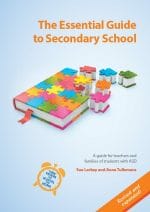
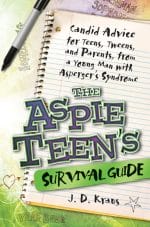
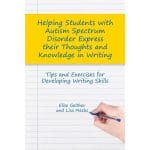


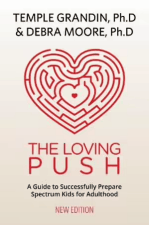
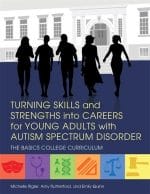
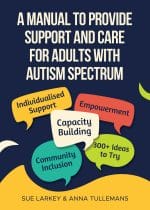
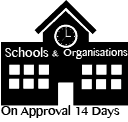
 For all orders outside Australia please email
For all orders outside Australia please email 